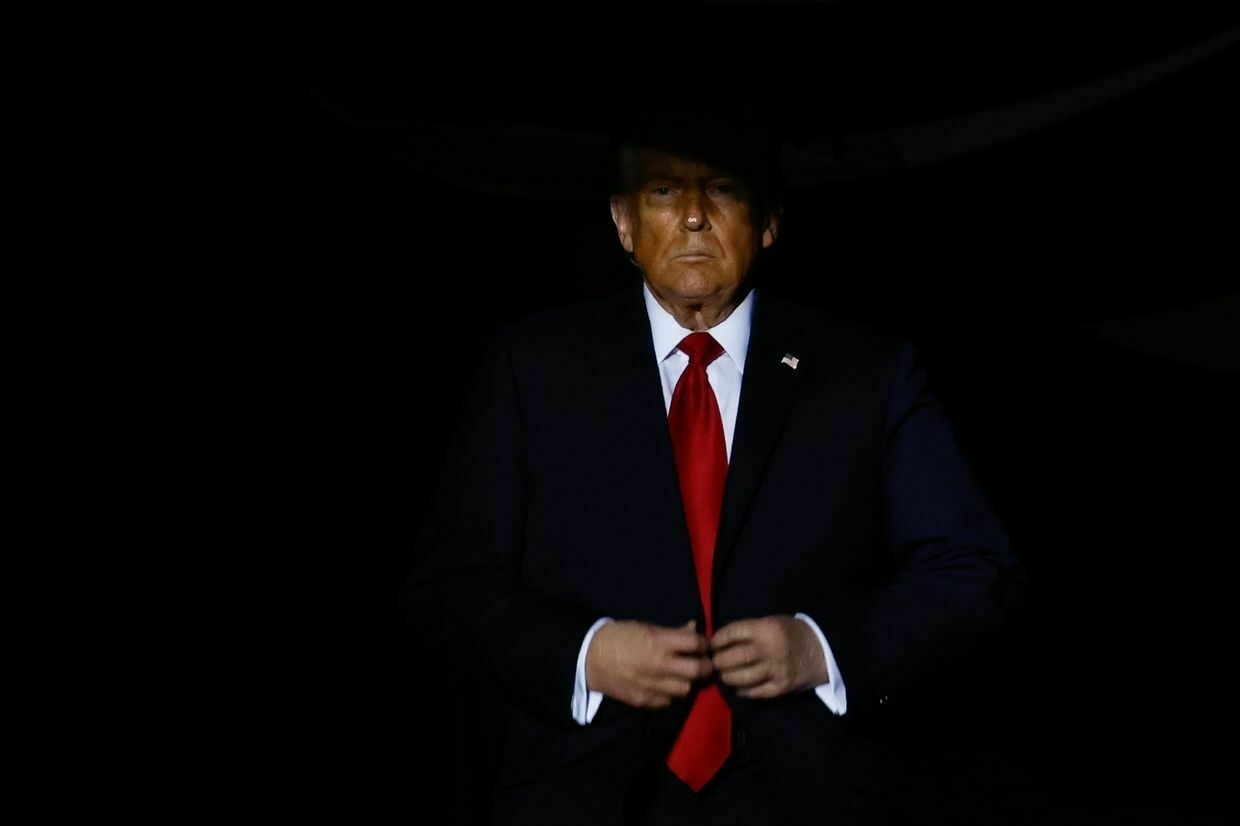
Key developments on April 23:
- US expects territorial concessions from Russia, Ukraine in potential peace deal
- Ukraine insists on unconditional ceasefire at London peace talks
- Trump says ‘nobody is asking’ Ukraine to recognize Crimea as Russian
- ‘Groundless accusations, political manipulations’ — China reacts to Ukraine summoning its envoy
- Ukrainian drone strike hits Russian drone factory over 1,000 kilometers from border, military claims
U.S. Vice President JD Vance said on April 23 that the U.S. presented a “very explicit proposal” to Russia and Ukraine on a peace deal, repeating warnings Washington might drop its peace effort if the belligerent sides refuse.
Talking to journalists during a visit to India, Vance said that it is time for Kyiv and Moscow “to either say yes or for the United States to walk away from this process."
“We have engaged in an extraordinary amount of diplomacy and on-the-ground work. We really tried to understand things from the perspectives of both Ukrainians and Russians,” he said. “I think that we put together a very fair proposal."
Vance added that “it’s now time to take, if not the final step, one of the final steps”— with all parties agreeing to stop the fighting, freeze territorial lines “at some level close to where they are,” and pursue a long-term diplomatic settlement.
The U.S. vice president also said that the two sides would have to give up some of the territory they control. Vance noted that eventual borders may not exactly follow the current front line but stressed it is currently necessary to lay down arms and “freeze” the war.
Following Vance’s remarks, a spokesperson for Downing Street told AFP on April 23: “We support U.S.-led efforts to bring about a lasting end to the war. I think that is what we all want. Ultimately, it must be for Ukraine to decide its future."
The comments follow reporting that the U.S. is ready to recognize Russia’s de jure control over Crimea and de facto control over occupied territories in the Donetsk, Luhansk, Zaporizhzhia, and Kherson oblasts as part of a peace deal.
Moscow occupies roughly 20% of Ukraine’s sovereign territory. This includes Crimea and parts of the Donbas region occupied in 2014, and additional territories taken after the start of the full-scale war in 2022.
President Volodymyr Zelensky has rejected the possibility of recognizing Russian hold over Crimea.
U.S. President Donald Trump has said his country will abandon the ceasefire effort in the coming days unless progress is made.
Earlier, a source close to French President Emmanuel Macron told AFP that “respect for Ukraine’s territorial integrity and its European aspirations are very strong demands of the Europeans."
The source added that while French, British, and German officials were meeting with American and Ukrainian envoys in London for ceasefire talks, “the objective remains to build a common approach that the United States could present to the Russians."
 The Kyiv IndependentKateryna Hodunova
The Kyiv IndependentKateryna Hodunova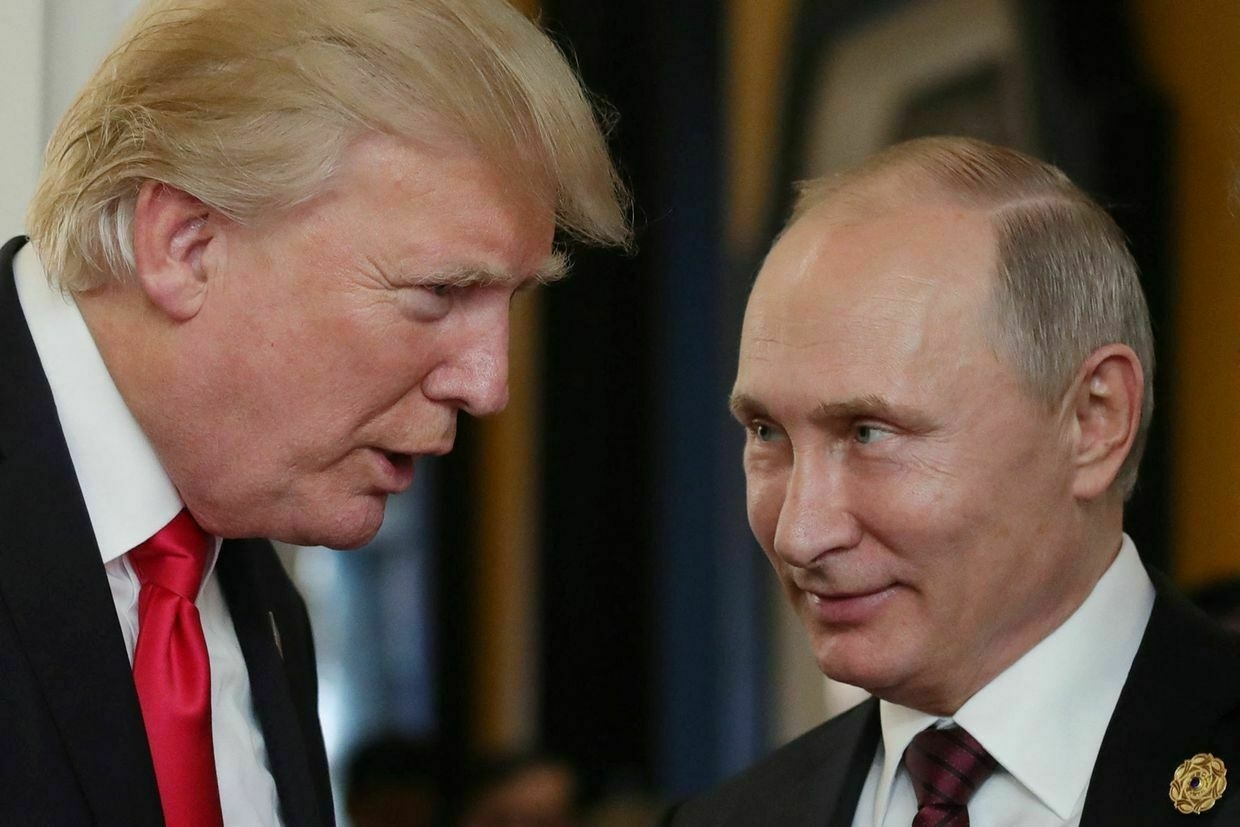
Ukraine insists on unconditional ceasefire at London peace talks
A Ukrainian delegation met with European officials and U.S. Special Envoy Keith Kellogg in London on April 23 to continue discussions on a possible path to peace, Ukraine’s Foreign Minister Andrii Sybiha said in a statement on X.
“During our meeting with U.S. Special Envoy General Keith Kellogg, we had a constructive exchange of views on the path to peace,” Sybiha wrote. “Ukraine wants the war to end more than anyone else in the world. We are committed to working together to achieve this goal."
The London meeting, originally intended as a ministerial-level summit involving the U.S., U.K., Germany, France, and Ukraine, was notably downgraded after U.S. Secretary of State Marco Rubio and U.S. Special Envoy Steve Witkoff declined to participate.
According to Reuters, Rubio pulled out after Ukraine submitted a document to European partners on April 22 declaring it would not enter talks on territorial issues until Russia agrees to a “full and unconditional ceasefire."
Following the meetings in London, Ukrainian Presidential Office head Andriy Yermak reiterated Kyiv’s position, saying, “An immediate, complete and unconditional ceasefire should be the first step towards the start of negotiations on achieving a just and lasting peace."
Yermak also emphasized that Ukraine would defend its “principled positions,” which form the basis of its sovereignty and territorial integrity.
Despite the absence of Rubio and Witkoff, the U.K. Foreign Ministry said “significant progress was made on reaching a common position,” and that all parties reaffirmed support for U.S. President Donald Trump’s stated commitment to achieving a just and lasting peace.
The meeting followed a summit in Paris on April 17, where senior Trump administration officials outlined a controversial peace proposal to Ukrainian and European delegates.
The plan reportedly includes recognition of Russia’s 2014 annexation of Crimea and a ban on Ukraine’s NATO membership — two central demands by the Kremlin.
 The Kyiv IndependentChris York
The Kyiv IndependentChris York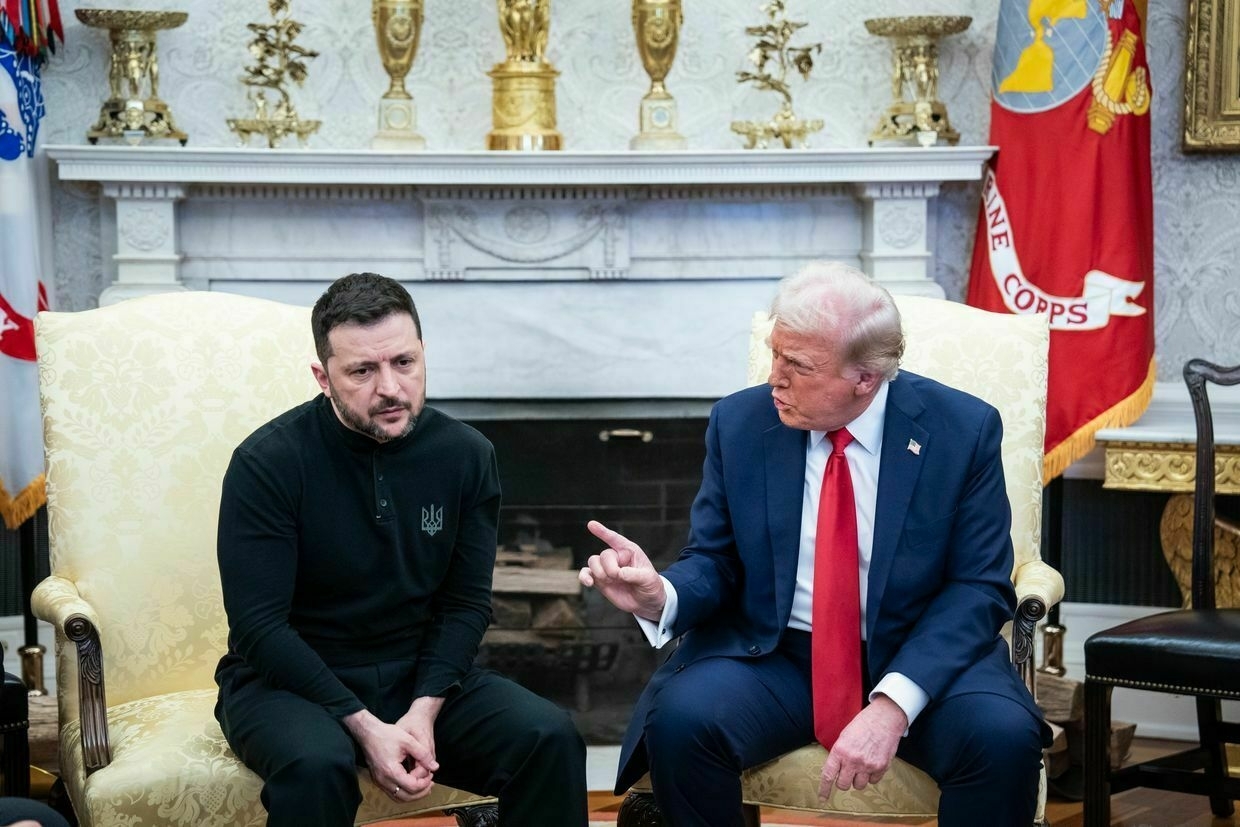
Trump says ‘nobody is asking’ Ukraine to recognize Crimea as Russian
President Donald Trump claimed in a post on his social media platform, Truth Social, that the U.S. is not forcing Ukraine to recognize Crimea as Russian, following reports that a U.S. peace plan includes the U.S. formally recognizing Moscow’s illegal annexation of Crimea.
“Nobody is asking (President Volodymyr) Zelensky to recognize Crimea as Russian Territory, but if he wants Crimea, why didn’t they fight for it eleven years ago when it was handed over to Russia without a shot being fired?” Trump wrote on April 23.
Trump’s remarks come one day after President Volodymyr Zelensky reaffirmed that Ukraine would never legally recognize Russia’s control of Crimea.
“There is nothing to talk about. This violates our Constitution. This is our territory, the territory of the people of Ukraine,” Zelensky said at a briefing in Kyiv on April 22.
In response, Trump called Zelensky’s position “harmful to the peace negotiations with Russia,” claiming that Crimea “was lost years ago under the auspices of President Barack Hussein Obama, and is not even a point of discussion."
The claim that Crimea was taken without force is false. During Russia’s 2014 annexation, armed Russian troops in unmarked uniforms seized Ukrainian government buildings, military installations, and blockaded bases.
At least one Ukrainian serviceman was killed, and dozens were detained or assaulted. The operation, widely condemned by the international community, violated international law.
Trump also argued that “even before the annexation of Crimea, major Russian submarine bases” were present there, and accused Zelensky of inflaming tensions with rhetoric that complicates peace efforts.
“He can have peace, or he can fight for another three years before losing the whole country,” Trump wrote. “I have nothing to do with Russia, but have much to do with wanting to save, on average, five thousand Russian and Ukrainian soldiers a week, who are dying for no reason whatsoever."
Despite expressing frustration over Russia’s refusal to de-escalate the war, the U.S. president has so far avoided imposing any major sanctions or taking punitive action against Moscow for its invasion.
While Trump appeared to frame the proposal as something Ukraine could reject, he notably did not deny that the U.S. might move forward with formally recognizing Crimea as Russian territory, something Russia had wanted for years.
Recognition of the annexation would contradict a decade of bipartisan U.S. policy and a 2014 United Nations General Assembly resolution, in which 100 member states declared the seizure illegal.
On April 22, Refat Chubarov, chairman of the Mejlis, the representative body of the indigenous Crimean Tatar people, firmly rejected any international recognition of Crimea as Russian territory.
“Crimea is the homeland of the indigenous Crimean Tatar people and an integral part of Ukraine,” Chubarov wrote. “Accordingly, no one can decide the fate of Crimea under any circumstances, except for the Ukrainian state and the Crimean Tatar people."
Since 2014, Moscow has used intimidation, religious profiling, and politically motivated terrorism charges to suppress dissent among Crimean Tatars. The Mejlis' stance, Chubarov said, is grounded in international law and fully aligned with the Ukrainian Constitution.
 The Kyiv IndependentNatalia Yermak
The Kyiv IndependentNatalia Yermak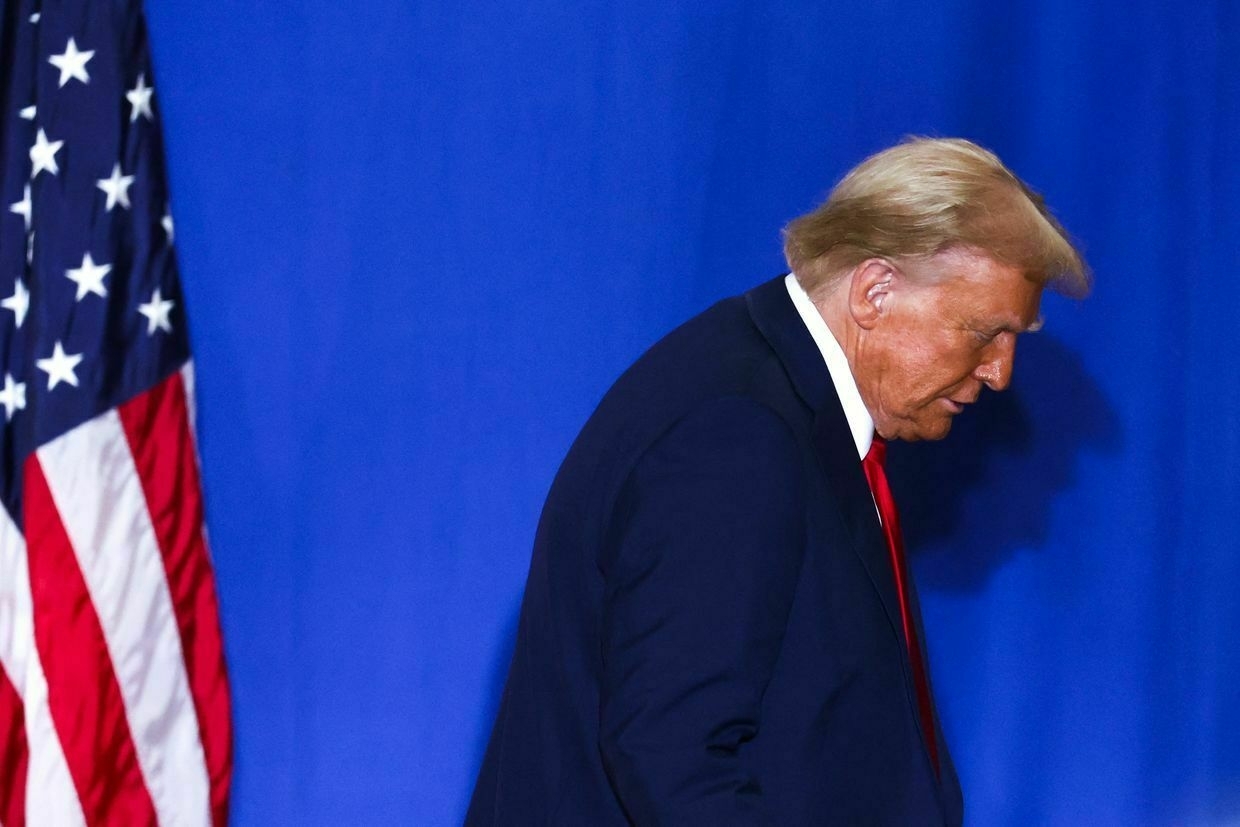
‘Groundless accusations, political manipulations’ — China reacts to Ukraine summoning its envoy
China’s Foreign Ministry on April 23 accused Ukraine of making “groundless” accusations after the Ukrainian Foreign Ministry summoned a Chinese ambassador to present evidence of Chinese involvement in Russia’s war.
A day earlier, Chinese Ambassador to Ukraine Ma Shengkun was invited to the Ukrainian Foreign Ministry to meet with Deputy Foreign Minister Yevhen Perebyinis.
Perebyinis presented the Chinese ambassador with evidence of Chinese citizens' participation in hostilities against Ukraine on Russia’s side and the involvement of Chinese companies in the production of military products in Russia.
The evidence was also passed on to the Chinese side by the Ukrainian security services.
The Chinese Foreign Ministry called Ukraine’s recent statements “groundless” and “political manipulations."
“We have clarified China’s position on the relevant issues. China strongly opposes groundless accusations and political manipulations,” Guo Jiakun, a spokesperson of the Chinese Foreign Ministry, said during a press briefing.
President Volodymyr Zelensky said on April 17 that China is supplying weapons to Russia, marking Kyiv’s first confirmation that Beijing supports Russia’s war effort by direct military aid. Iran and North Korea are two other allies of Moscow that supply Russia with arms.
Though Beijing has long denied supplying arms, multiple reports have suggested otherwise. In summer 2024, Zelensky said China had assured Ukraine it would not deliver weapons to Russia.
While officially claiming neutrality, Beijing has deepened economic ties with Moscow, supported Russia against Western sanctions, and emerged as a top supplier of dual-use goods that feed the Russian defense sector.
Earlier this month, Ukrainian forces captured two Chinese nationals fighting for Russia in Donetsk Oblast. Zelensky later said that “several hundred” Chinese nationals were fighting on Russia’s side.
China has denied any direct involvement in the war and claimed it has urged its citizens to avoid armed conflicts.
 The Kyiv IndependentTim Zadorozhnyy
The Kyiv IndependentTim Zadorozhnyy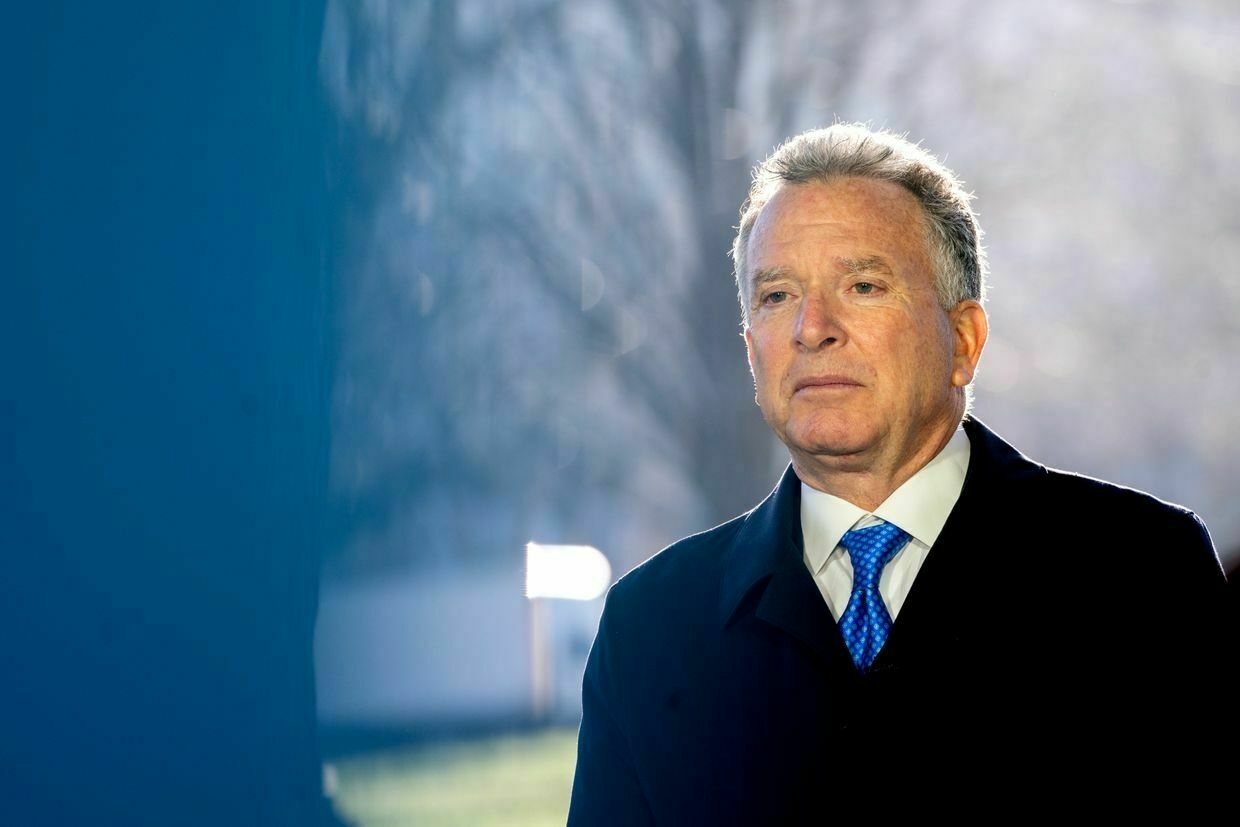
Ukrainian drone strike hits Russian drone factory over 1,000 kilometers from border, military claims
Ukraine’s military said on April 23 that it struck a Russian facility producing combat drones located more than 1,000 kilometers (621 miles) from Ukraine’s border.
Independent news channel Astra reported earlier in the day that a Ukrainian long-range drone strike had targeted Alabuga, sharing purported footage of a drone being shot down.
The Russian Defense Ministry claimed that Russian air defenses shot down one Ukrainian airplane-type drone in Tatarstan at about 12:20 p.m. local time, without providing further details or mentioning Alabuga.
The strike, carried out by Ukraine’s Unmanned Systems Forces in coordination with other branches of the military, targeted a plant in the Alabuga Special Economic Zone of Russia’s Republic of Tatarstan, the General Staff said.
The facility that was hit manufactures up to 300 Iranian-style Shahed drones and their Russian-made variants, Gerans, per day, according to the General Staff. Shahed-style drones are frequently used by Russia in attacks on Ukrainian cities and infrastructure.
The attack is among Ukraine’s deepest strikes into Russian territory since the full-scale invasion began in 2022. Ukraine hit targets over 1,000 kilometers last year for the first time, with one attack occurring 1,800 kilometers (1,118 miles) from the border in Russia’s Murmansk Oblast.
The General Staff said that there were “confirmed hits and explosions in the target area,” and that the damage to the facility as a result of the attack was still being assessed.
“The strike is a justified response against a strategic military site used to support Russia’s aggression and terror against Ukraine and Ukrainian civilians,” the General Staff statement read.
Over 6,000 Shahed-type drones were produced in Alabuga last year, as well as thousands of decoy drones used to overwhelm Ukrainian air defenses, said Andrii Kovalenko, an official at Ukraine’s National Security and Defense Council.
Russian forces launch hundreds of drones nearly every night at Ukraine, targeting civilian areas and critical infrastructure. The attacks have intensified in recent months as Moscow continues to reject a U.S.-backed proposal for a 30-day ceasefire, which Kyiv says must include a halt to attacks on civilian infrastructure.
Ukrainian President Volodymyr Zelensky has urged a temporary freeze on long-range drone and missile strikes, but Kremlin officials have dismissed the idea.
Note from the author:
Ukraine War Latest is put together by the Kyiv Independent news desk team, who keep you informed 24 hours a day, seven days a week. If you value our work and want to ensure we have the resources to continue, join the Kyiv Independent community.
